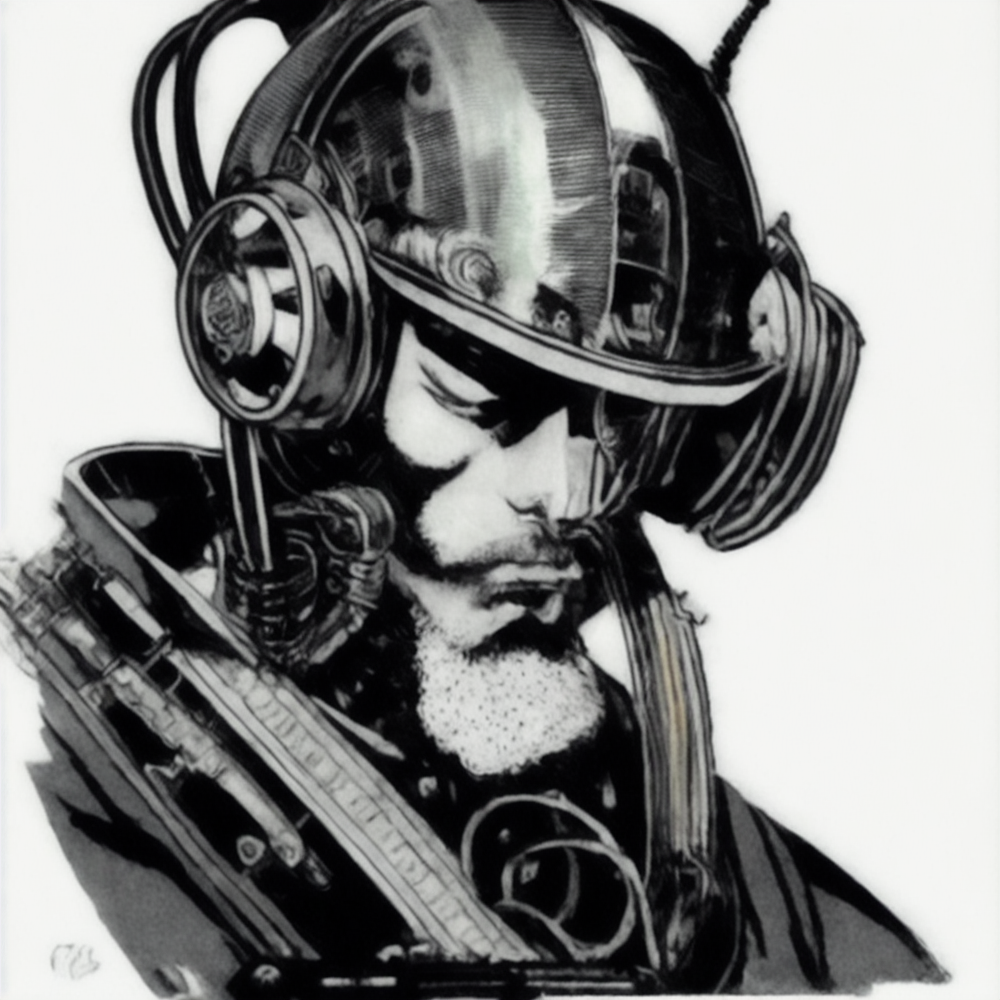For a long time, I thought of the blockchain as almost synonymous with cryptocurrencies, so as I saw stuff like “Odyssey” and “lbry” appearing and being “based on the blockchain”, my first thought was that it was another crypto scam. Then, I just got reminded of it and started looking more into it, and it just seemed like regular torrenting. For example, what’s the big innovation separating Odyssey from Peertube, which is also decentralized and also uses P2P? And what part of it does the blockchain really play, that couldn’t be done with regular P2P? More generally, and looking at the futur, does the blockchain offer new possibilities that the fediverse or pre-existing protocols don’t have?
Merkel Trees are fine, and are how things like “Git” keep track of different files (and how distributed hash tables and file-sharing often work).
Merkel Trees are trees-of-hashes, which the cryptocoin world wants us to believe go by the new name of ‘Blockchain’, but people familiar with comp. sci history know that they’re just flailing about making shit up.
Blockchain is an application of Merkel Trees. Merkel Trees have lots of good uses, but Blockchain doesn’t seem to have much use after 10+ years of experimentation.
ETH has DNS. I would think the fediverse would like to see adoption of DNS that governments and big companies can’t mess with or take over with lots of cash.
ETH staking is looking like its literally illegal in the USA, you know that right?
Coinbase Earn is quite possibly trading in unsecured, unregulated securities and is being sued over it.
deleted by creator
deleted by creator
That’s FUD. Lots of US based companies promote ETH staking and there’s no sign that the SEC is going to declare it a security.
I thought it sounded interesting when it was new but the more I’ve learned, the more convinced I am that it’s completely useless. I’ve never seen anything done on a blockchain that couldn’t be done faster, cheaper, and more securely in a SQL database. Even the not-a-scam applications are ridiculous and fall apart upon examination. Blockchain as a definitive record of ownership? Absolutely not. There’s no way to force a person to update a record. Lose your house in a bankruptcy? The sheriff on his way to evict you isn’t going to care that you’ve got some NFT saying you still own the house. Anything involving contracts at all? If a court can’t unilaterally update the blockchain record, then the record is unreliable. But if the government can unilaterally update a record, then you’re not relying on community consensus and immutability in the first place.
Blockchain isn’t useful for anything important, and it’s not a logical choice for anything trivial aside from literally just playing with blockchain stuff for the sake of playing with blockchains. I think it’s a dead-end technology.
Blockchain as a definitive record of ownership? Absolutely not.
Oh, its worse than you think.

https://www.cs.princeton.edu/~arvindn/publications/mining_CCS.pdf
Once BTC hits enough halvening-cycles, the entire protocol doesn’t work anymore. Its more beneficial to fork the blockchain (and collect ~50 transaction fees), rather than work on the head (and only collect ~5 transaction fees).
So if the last block confirmed 100-transactions (aka: collected 100 transaction fees), its more beneficial to undo that block and “steal” ~50 transactions, knowing that you’re leaving ~50 transactions for another miner to follow onto your block. (Ex: there are now two blocks: one with ~5 transactions available, the truth… and ~55 transactions available. The lie / false block you created. The lie is more economically beneficial to the next miner, so they’ll switch to your block).
It turns out that BTC forgot how to handle ties after the end of the “Free reward”, and there’s a good chance that “definitive record” is not so definitive.
I find it to be an interesting solution looking for a problem. There could be many applications but I’ve yet to see one that blockchain could solve better than anything else that we already have, outside of crypto currencies.
Web3 is an interesting thought experiment but I don’t see how it would work in real life. It would be extremely slow, data loss would be a daily occurrence and it would be a privacy/security nightmare.
NFTs could have a useful case of keeping online records of ownership. Being cars, homes and even cattle. Which coulld also make it easier and cheaper to sell or buy these things.
Ignoring privacy concerns of course.
But you would still need an authority that can unilaterally make changes to these ownership records. People die, things get lost, stuff happens. So it can’t all be based on signing with private keys of individual persons. At that point: Why not run a central database of it all. It’s cheaper, more efficient and you could still publish a public record for traceability.
I really don’t see any problem that Blockchain could solve better than other solutions. Except Cryptocurrency.
A simple database has trust issues – the blockchain IS this database with trust issues resolved.
Yeah right. It’s that easy :D
Blockchain (simplified) is a giant excel spreadsheet that you can never edit, only add to. I struggle to think of any applications that is a benefit for, and even then append only databases would already do it better.
One of the benefits is supposed to be decentralization, but people tout that as a benefit for things like house deeds, or identification, or whatever. Imagine how massive an append only excel file of every house with every owner change etc etc included in it would be. Then we once again only have the people who can afford to store that much data storing it, and we are back to where we are now.
It doesn’t really solve any problems, it just is a worse version of what already exists.
Something about this comment didn’t seem right to me, so I did some quick math:
There are approx 144,000,000 homes (incl apartments, etc) in the US. https://www.census.gov/quickfacts/fact/table/US/VET605221
Assuming every home is sold 5 times on average, that’s 720,000,000 sale records/deeds.
Existing blockchain implementations use IDs that are around 32 bits, or 4 bytes.
A “home sales record” or deed on the blockchain needs to include the buyer and the time/date of sale (8 bytes), along with a cryptographic signature (4-16 bytes). The seller’s identity doesn’t need to be included because it’s always doing to be the previous owner.
So each record is 16-28 bytes, and there are 720,000,000 records. If we go with 28bytes, it would take about 20GB to store all of the deeds for the US. A 500GB hard drive costs $20.
…and 20G that needs to be replicated to tons of nodes if it should be really decentralized.
16-28 bytes seems extremely understated, I think it could easily be off by orders of magnitude.
What do you think I’m missing in my estimate? Do you have any experience in CS?
You’re just talking about ownership of a title right?
A deed contains a lot more information than the owner. Mine is 4 pages long. Contains a map of the street, various easements, et cetera.
Yeah, but that kind of data would be better in an auxiliary database. There’s no reason to include it in the blockchain.
well but doesn’t that beat the purpose of using the blockchain in the first place? why not just store everything in the auxiliary database?
Depends on why you want to use the blockchain, I guess. If you want a system to allows anyone to verify ownership of property without 3rd parties (government, etc) being involved then the auxiliary database should work fine.
What purpose were you thinking of, that would be defeated by an aux DB?
The “blockchain” I use on a daily basis is git, where the sha of the previous commit affects the next.
Given that git was invented before the word “blockchain” started being used, shouldn’t we call blockchain applications “git-like” rather than retroactively calling Git a blockchain?
So Google, Amazon, Apple, and many other large companies in the IoT space are using a blockchain as a federated data store: https://github.com/zigbee-alliance/distributed-compliance-ledger
It stores the data needed for Matter [ https://en.m.wikipedia.org/wiki/Matter_(standard) ] device attestation.
I think its an interesting use case on how entities that don’t particularly trust each other can operate a federated system. Accounts are linked to an identity out-of-band in order to have write permissions to the chain. When an account writes, all the readers of the chain have reasonable assurances of the author of that write. No company can inject false state as another company without that company’s guarded private key. All transactions are also auditable as an additional assurance the data isn’t undergoing a malicious act.
tl;dr; interesting use cases for tamper proof federated ledgers.
As we see here on the Fediverse, decentralization works fine without monetization using an actively anti-scaling append only database that emits the pollution of a medium sized country.
The only other good thing that came out of it is it increased the prevalence of digital payment system in the world, but I struggle to think of anything that would actually directly benefit from blockchain.
IMHO technically speaking the concpt of a Blockchain and decentralized zero trust computing like in Ethereum are indeed “interesting” as concepts.
But in practice there are a ton of issues with current implementations and it’s likely not going to be used on a large scale because zero-trust doesn’t scale well.
It was “interesting” 15 fucking years ago when it came out and we didn’t know what it could (or couldn’t) do.
15 years later, no one has come up with an application, so I think we can stop pretending that there’s a solution here. We’re now into “just 5 more years” to figure out a good use of this thing, and no one is any closer to an answer.
15 Years Ago, the Wii U hadn’t come out yet and iPhone App store wasn’t used yet. Think about how much life has changed, and how little the cryptocoin people moved forward with their tech. Its mind-boggling how much money they’ve been given and how little progress has been made.
15 years ago when Bitcoin was invented was roughly the launch of Super Smash Bros Brawl and Halo 3, to put this into video-game terms.
My principle of “blockchain’s fundamental value” is simply this: A blockchain that secures valuable information is valuable.
To break that down further:
- “Valuable information” isn’t data - it’s something that you can interpret, that has meaning and power to affect your actions. So, price speculation taking place on a chain isn’t that valuable in a broad, utilitarian sense, but something like encyclopedic knowledge, historical records, and the like might be. The sense of “this is real” vs “this is Monopoly money” is related to the information quality.
- “Secures” means that we have some idea of where the information came from, who can access it, and whether it’s been altered or tampered. Most blockchains follow the Bitcoin model and are fully public ledgers, storing everything - and just within that model(leaving aside Monero etc.) there are positive applications, but “automatically secure” is all dependent on what application you’re aiming for.
You don’t need to include tokens, trading, finance, or the specific method of security, to arrive at this idea of what a blockchain does, but having them involved addresses - though maybe without concretely solving - the question of paying upkeep costs, a problem that has always dogged open, distributed projects in the past. If the whole chain becomes more valuable because one person contributes something to it, then you have a positive feedback loop in which a culture of remixing and tipping is good. It tends to get undercut by “what if I made scam tokens and bribed an exchange to list them”, the maxi- “we will rule the world” cultures of Bitcoin and Ethereum, or the cynical “VC-backed corporate blockchains”, but the public alt chains that are a bit out of the spotlight with longer histories, stuff like Tezos and NEM/Symbol, tend to have a more visible sense of purpose in this direction - they need to make a myth about themselves, and the myth turns into information by chance and persistence.
What tends to break people’s brains - both the maxis, and people who are rabidly anti-crypto - is that securing on-chain value in this way also isn’t a case of “public” vs “private” goods. It’s more akin to “commons” vs “enclosed” spaces, which is an older notion that hasn’t been felt in our political lives in centuries, because the partnership of nation-states and capital has been so strong as a societal coordinating force - the state says where the capital should go, the people that follow that lead and build out an empire get rewarded. The commons is, in essence, the voice in the back of your mind asking, “Why are you in the rat race? Do you really need an empire?” And this technology is stating that, clearly and patiently: making a common space better is another way to live.
And so there is a huge amount of spam around “ownership”, but ownership itself isn’t really a factor. That’s just another kind of information that the technology is geared towards storing. The social contract is more along the lines that if you are doing good for a chain and taking few risks, a modest, livable amount of credit is likely to flow to you in time. Everyone making “plays” and getting burned is trying to gamble with it, or to advance empire-building goals in a basically hostile environment that will patch you out of the flow of information.
I’ve heard of a couple interesting applications (interesting doesn’t necessarily mean good)
-
I’ve been out of the industry for a couple years, but at the time I left both the US’s NAR and CA’s CREA were looking to create blockchains that would eventually hold an immutable history of every salable property in North America. The sales pitch is that no one will ever be able to hide things like flood damage or zoning changes if they’re all those events are in a trusted database. Carfax, but for buildings.
-
Several US states with legalized Marijuana have what are known as Seed To Sale laws. One company was trying to move into this space and eventually into all of agriculture. The idea being that if you buy pot, scanning a QR code would tell you what clone# the seeds were from, where and when it was planted, what pesticides/herbicides were used on/near it, when it was harvested, any tests it had gone through, etc.
So I have two questions about this:
- Why use blockchain for that? Both of these sound like they will be centralized databases and blockchains just add a bunch of overhead for no benefit.
- How does a database prevent me from … just lying to it? The blockchain won’t magically detect if I paid off some guy to claim he inspected my house or weed and just hand out a certificate.
Probably transparency. It’s a public ledger. That’s one of the benefits I’m aware of.
-
zero knowledge proofs, like those being deployed on blockchains recently, have the potential to be the killer app for this tech. Imagine you want a library card which requires proof of residence. With a zero-proof identity system, you could get your library card without revealing any personal info, like your name or address. Your wallets would simply prove to the library that you are a resident as credentialed by some local/state authority.
This also could have profound implications for the web like universal logins to web services, online privacy while still providing attribution, ownership and rights to digital content, copyright, etc.
You don’t need blockchain to do ZKP.
You don’t even need ZKP to do these things. Obviously (as you said) there’s a local/state authority who knows this. The library could just ask them about it.
deleted by creator
Asset Tokenization and Smart Contracts are two things that will be increasingly used in Finance. That is why the recent BIS report on CBDCs included both of those as essential features of a Central Bank Digital Currency.
What Blockchain does is provide these features of a digital currency in a way that doesn’t require a trusted intermediary. This makes Blockchains resistant to censorship in a way that a central bank digital currency can never truly guarantee. It is true that a centralization system like a database or ledger can be faster, more efficient and more secure but that you will always have to trust that provider of that service that they will continue operating in a manner that is congruent with what a user may want.
A recent example of this would be the news that Ubisoft is deleting inactive accounts on Uplay, which is potentially resulting in many users losing access to games they bought on that platform. Were the rights to those game tokenized on a Blockchain or CBDC, the users could potentially redeem that on another platform. Another example would be the case of the user losing his 900 hour character in Red Dead Redemption after Google shutdown stadia. Had that player’s character been tokenized as an NFT he might have the capacity to move it off of stadia and onto another game platform.
Get a little nervous about your Steam Game collection worth 1000s of dollars that is completely locked into Valve’s ecosystem? How about a decentralised, immutable and censorship-resistant record of your ownership of those games? That is what asset tokenization is about and it will become more important in the future as our lives and our assets become more digital.
Then there are multitude of uses for smart contracts which, again, don’t require a blockchain provided you are ok with relying on a trusted intermediary to execute the contract as it was termed. Given that contracts by their nature often involve agreement between organisations or individuals with diverging interests, it almost a certainty that having an immutable, censorship resistant network to run those smart contracts is desirable.
I have wet dreams about a new text based mesh internet powered by the gemini protocol. Imagine, if you will, instead of paying monthly to your ISP/cell service provider to acess the internet, that instead you bought an ‘internet box’ once. Where each router/gateway acts both as a self-hosting site for the user, and transmits this site text data to other local routers through LoRaWAN. There are many technical challenges to this kind of networks, one being “how do I check that all other routers have an up-to-date version of any one site?” and blockchain technology seems to fit nicely for that particular issue.
Nothing about cryptocurrencies, NFTs, or the “Blockchain” are beneficial to human society. They only serve as a means for immoral people to acquire misappropriated funds.
I’ve been thinking about this for a while, and would love to have other, more knowledgeable (hopefully!) opinions on this:
I’ve been dwelling on how we might be able to enforce some sort of set of rules or widely agreed upon “morals” on artificial general intelligence systems, which is something that should almost certainly be distributed in order a single entity from seizing control of it (governments, private individuals, corporations, or any AGI systems), and which would also allow a potentially growing set of rules or directives that couldn’t be edited or controlled by a singular actor–at least in theory.
What other considerations would need to be made? Is this a plausibly good use of this technology?
Blockchain is at its core just an Excel spreadsheet. The only thing it adds is some form of distributed consensus (which may or may not work depending on who you ask).
If you can figure out how to use an Excel spreadsheet to enforce morals in an AI system, then you’re good to go.











